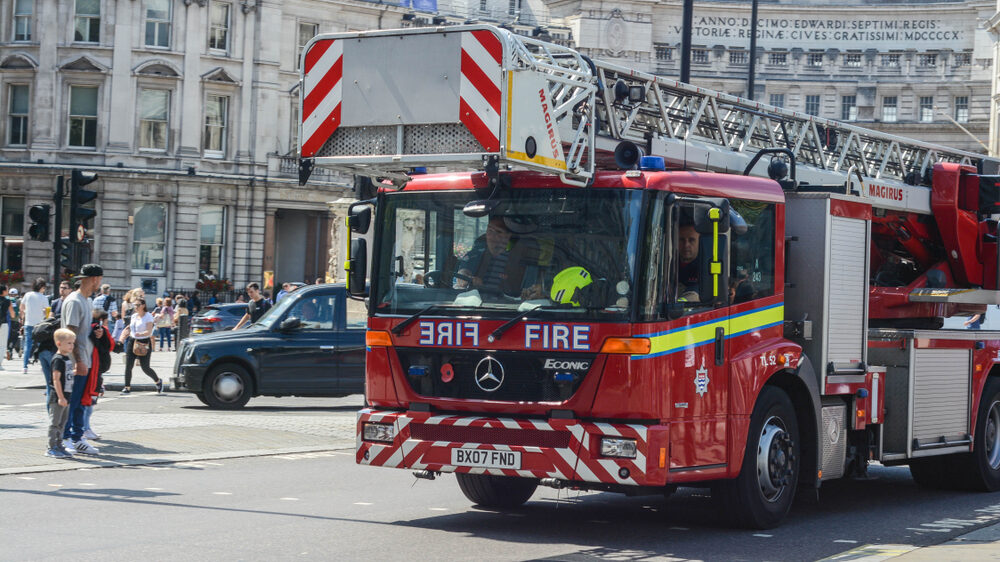London wildfire response in 2022 impacted by firefighter shortages, report reveals
- July 11, 2023
- 7:06 am


Iain Hoey
Share this content
London Fire Brigade faced considerable challenges during wildfires due to lack of crew
Last July, London’s response to wildfires was hindered due to a deficiency in firefighters.
A recent report disclosed that 39 fire engines could not be dispatched to tackle the wildfires, as they were not staffed.
This particularly affected Wennington, Havering where, during a fire on 19th July 2022, 16 homes were destroyed.
Report indicates improvements needed in London’s wildfire response
Following a Freedom of Information request by the BBC, a major incident review of the London Fire Brigade’s (LFB) response was released.
The review, according to a brigade spokesperson, will be utilised to enhance their future preparedness.
Deputy Commissioner Dom Ellis commented: “We know last summer was not a one-off – climate change will continue to give rise to more extreme weather events.
“That’s why we have reviewed what happened last summer to determine how we can improve and be as best-prepared to tackle this ever-growing risk head-on.”
The General Secretary of the Fire Brigades Union (FBU), Matt Wrack, argued that firefighters are not being provided “adequate resources… to do their jobs.”
On 19th July, one of LFB’s “busiest days in the modern firefighting era,” they received 2,496 calls, with 740 of them regarding wildfires, and 26 fires requiring four or more pumping appliances.
Despite these overwhelming circumstances, the report praised staff for responding with “bravery, tenacity and determination.”
However, the review found that due to insufficient staff numbers, 39 appliances were unavailable. This resulted in extended response times and challenges in managing specific incidents or providing relief for colleagues at long-lasting incidents.
Even if the extra 39 appliances had been available, the report suggested, the extraordinary demand of that day would have still posed challenges in managing the fires and providing crew relief.
LFB implements measures to improve future wildfire response
In response, the brigade has initiated a recruitment plan and incorporated new equipment for future wildfire response.
This includes a ‘holey hose’ that can create a water curtain of up to two metres high along its length.
London’s deputy mayor for Fire and Resilience, Baroness Fiona Twycross, said: “The new specialist ‘holey hose’ equipment being used by fire crews across the capital is part of the Mayor’s ongoing investment, modernisation and transformation of the brigade to build a safer London for everyone.”
The review also uncovered several areas for improvement. There was a shortage of personal protective equipment (PPE), due to improper laundry processes, which resulted in 95 instances where staff were unable to work. F
emale firefighters were significantly impacted by this PPE shortage. The LFB did not have a fully qualified Wildfire Tactical Advisor (TAW) at the time.
Additionally, the brigade must enhance the capabilities of its incident commanders to properly assess resources required for wildfires and develop better tactical plans.
A noticeable “resistance to reflection and review” was found in some areas of the brigade.
Echoing concerns, Matt Wrack of the FBU cited “a lack of national strategy and planning on issues like wildfires.”
He argued: “Wildfires have been on the government’s risk register for a decade, but they have failed to learn the lessons of last year’s wildfires. This is negligence driven by cuts and complacency.”
As a corrective measure, the brigade plans to appoint 10 wildfire officers and 30 wildfire tactical advisors, who will undergo training in the more rural parts of England where wildfires are more common.
The LFB is also learning new tactics from fire and rescue services in Europe.
Awaiting a national policy on wildfire response
The National Fire Chiefs Council (NFCC) and the UK government are expected to establish new national policy guidelines on wildfires. Meanwhile, residents of Wennington who lost their homes in last year’s fire are still waiting for reconstruction.
Havering Council mentioned that they are “working closely with affected residents to help them get their lives back on track.”
According to Reverend Elise Peterson, the rebuilding progress has been slow and the incident has resulted in a permanent change in the village.
IFSJ Comment
This news underscores the crucial importance of ensuring our fire services are adequately resourced to handle the escalating risks posed by climate change, including more frequent and severe wildfires.
The concerns raised by the Fire Brigades Union underscore the need for a national strategy on wildfires and greater support for our firefighters.
About London Fire Brigade
The London Fire Brigade is one of the largest firefighting and rescue organisations in the world. They play a crucial role in serving and safeguarding London’s population of over eight million people. The brigade not only deals with fire emergencies but also provides a wide range of services designed to make London a safer city.
Sources: BBC News, Fire Brigades Union.

